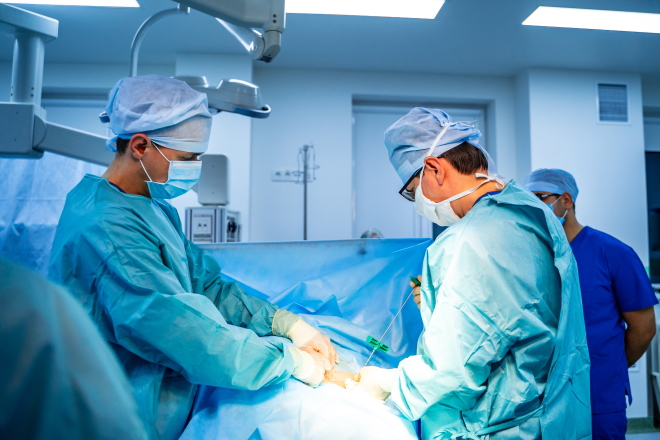Sickle Cell Anemia
Sickle cell disease is an inherited serious disorder in which the body produces red blood cells with an abnormal “sickle” shape, like the letter C. Although sickle cell disease is not a cancer, its treatment can be similar to therapies used to treat leukemias and lymphomas.
-
Our Team
Experts at The Johns Hopkins Kimmel Cancer are nationally and internationally recognized as leaders in the research and treatment of sickle cell disease and other blood disorders. Our experienced and dedicated team provides our patients the best quality of care possible.
-
Treatment Options
The only potential cure for sickle cell disease currently is a bone marrow transplant, and Johns Hopkins physicians have developed a bone marrow transplant protocol that has been successful for sickle cell patients.
-
Clinical Trials
Find information about open sickle cell disease studies offered at the Johns Hopkins Kimmel Cancer Center.

Treatment Options
The only potential cure for sickle cell disease currently is a bone marrow transplant, and Johns Hopkins physicians have developed a bone marrow transplant protocol that has been successful for sickle cell patients.
Bone Marrow Transplant
A bone marrow transplant gives a patient healthy stem cells – immature cells that grow into different types of blood cells. These stem cells come from marrow, the soft, fatty tissue inside the bones, replacing marrow that is not working properly.
Physician-scientists at Johns Hopkins have developed a procedure called a half-matched bone marrow transplant that has been successful in “curing” sickle cell disease. Normally, doctors look for a marrow donor who matches a patient's human leukocyte antigen (HLA) tissue type. HLAs are proteins found on most cells in the body. The immune system uses these proteins to recognize cells that belong in the body versus those that do not. The closer the match between a patient's HLA proteins and the donor’s, the better for the patient. The Hopkins procedure requires just a half-match, meaning that a patient’s parents or children could be suitable donors. With this option, doctors estimate that more than half of patients have potential matches.
Rather than wiping out a patient’s immune system before transplanting donor bone marrow, as is often the case with other bone marrow transplants, doctors give patients just enough chemotherapy to suppress the immune system, which keeps them from rejecting the donated marrow without harming their organs. Three days after the transplant, a patient is given a high dose of a drug called cyclophosphamide, which “re-boots” the immune system. (Learn more about the Johns Hopkins Bone Marrow Transplant Program.)
Bone Marrow Transplant and Haploidentical Transplantation
Dr Rick Jones explains the history of bone marrow transplants, the pioneering scientific discovery lead by Johns Hopkins researchers and the current state of this life saving procedure.
Blood Transfusion
Transfusion delivers new red blood cells to a sickle cell disease patient through a narrow tube placed in a blood vessel. Transfusions can increase the number of normal red blood cells in circulation, helping to relieve anemia. They can also decrease children’s risk of stroke.
Medical Therapy
Drugs used to manage sickle cell disease include antibiotics to help fight infections, pain-relieving medications to lessen pain during crises, and a drug called hydroxyurea, which can reduce the frequency of crises or the need for blood transfusions.
Sickle Cell Center for Adults
Johns Hopkins operates a Sickle Cell Center for Adults that provides comprehensive care including regularly scheduled outpatient visits, screening for hydroxyurea eligibility, genetic counseling, pain management, education, wound care and social services.
Clinical Trials
Clinical trials test new drugs and new ways of treating patients with sickle cell disease. Our experts conduct these studies to find better treatments. Many clinical trials become the next standard of care. To determine if a trial is right for you, make an appointment for a consultation at 410.955.8964.

